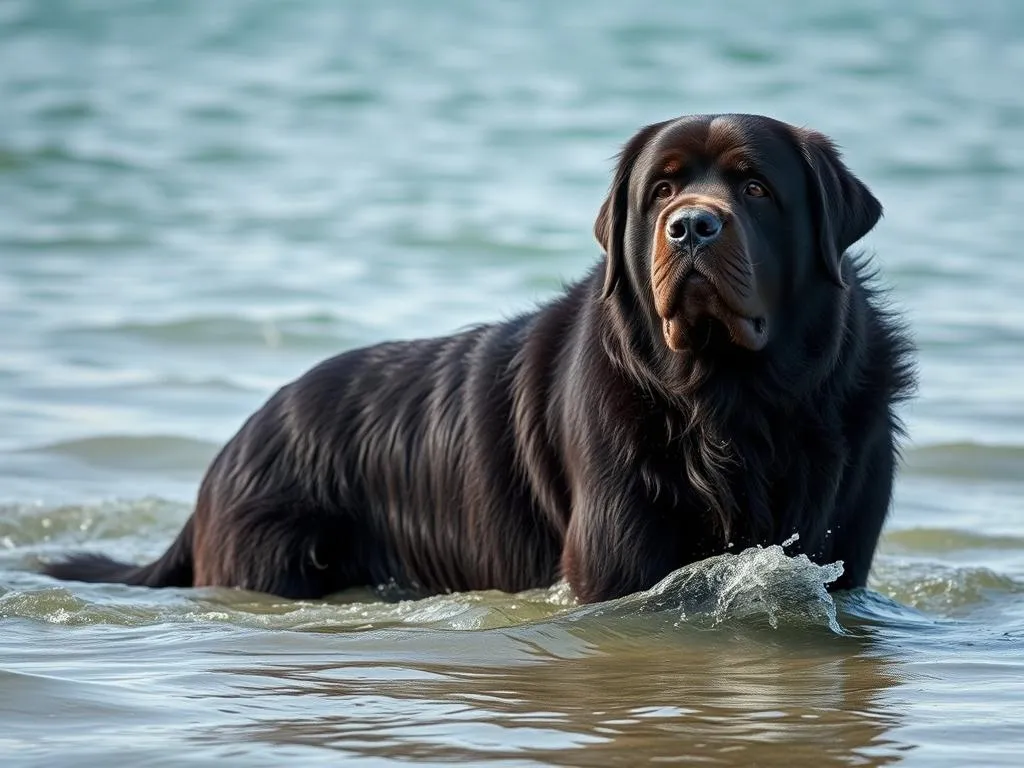
Dogs are often referred to as “man’s best friend,” and for good reason. With hundreds of different dog breeds, each possessing unique characteristics, it’s essential for potential dog owners to understand the traits of various breeds before making a commitment. One particularly fascinating breed is the Newfoundland dog, renowned for its affinity for water. This article will explore the question: do Newfoundland dogs like water?
Understanding Dog Breeds
Definition of Dog Breeds
A dog breed is a specific group of domestic dogs that share a common ancestry and possess distinct physical and behavioral traits. Breeds are classified into two main categories: purebred and mixed breed. Purebred dogs are recognized by major kennel clubs and adhere to specific breed standards, while mixed breeds are a combination of two or more breeds, often resulting in unique characteristics.
Importance of Breed Characteristics
Understanding breed characteristics is crucial for compatibility with families and their lifestyles. Each breed has specific traits that influence temperament, behavior, and health. For example, some breeds are known for their energy levels, making them ideal for active families, while others may be more laid-back and suited for quieter households.
The Newfoundland Dog Breed
History and Origin
The Newfoundland dog has a rich history that dates back to the early 18th century. Originating from the Canadian island of Newfoundland, these dogs were initially bred for their remarkable swimming abilities and strength, which made them ideal working companions for fishermen. They were used for pulling nets and retrieving fish, showcasing their natural talent in water.
Physical Characteristics
Newfoundland dogs are large, powerful animals, often weighing between 100 to 150 pounds. They have a thick, water-resistant double coat that can come in various colors, including black, brown, and Landseer (white with black markings). A distinctive feature of the breed is their webbed feet, which enhance their swimming capabilities, allowing them to paddle efficiently through water.
Temperament and Behavior
Newfoundlands are known for their gentle and friendly temperament. They are remarkably sociable, intelligent, and loyal, making them great family pets. Their calm demeanor, combined with a natural instinct to protect, makes them excellent companions for children and other animals. The breed is often referred to as “gentle giants” due to their size and sweet nature.
Do Newfoundland Dogs Like Water?
Natural Instincts
When it comes to the question of do Newfoundland dogs like water, the answer is a resounding yes. This breed has a natural affinity for water, largely due to their inherited traits. Their webbed feet propel them through water effortlessly, and their thick fur helps insulate them against cold temperatures. These physical adaptations make Newfoundlands instinctively drawn to aquatic environments.
Historical Roles in Water
Historically, Newfoundland dogs played a vital role in water rescue. Their strong swimming abilities were utilized in lifesaving missions, where they would assist in rescuing drowning individuals. Stories abound of Newfoundlands rescuing fishermen from icy waters, reinforcing their reputation as devoted and capable water companions.
Modern-Day Preferences
In contemporary settings, many Newfoundland owners report their dogs’ love for water. Whether it’s a trip to the beach, a lake, or even a backyard pool, Newfoundlands often exhibit enthusiasm when it comes to swimming and playing in water. Anecdotal evidence indicates that these dogs thrive during water activities, further confirming their love for aquatic environments.
Caring for a Newfoundland Dog
Exercise Needs
Newfoundland dogs require regular exercise to maintain their health and happiness. While they enjoy leisurely walks, they particularly thrive in water-related activities. Swimming is an excellent form of exercise for these dogs, providing both physical activity and mental stimulation. Fetching toys or splashing around in a dog-friendly pool can be enjoyable for both the dog and the owner.
Grooming Requirements
Due to their thick coats, Newfoundland dogs require regular grooming to prevent matting and keep their fur healthy. It’s important to brush their coat at least once a week, increasing the frequency during shedding seasons. After swimming, ensure to rinse and dry their coat thoroughly to prevent any skin irritations or infections, especially in their ears.
Health Considerations
While Newfoundlands are generally healthy, they are prone to certain health issues, including hip dysplasia and ear infections. Regular veterinary check-ups are essential to monitor their overall health. After swimming, it’s crucial to check their ears and dry them properly to prevent moisture buildup, which can lead to infections.
Training Newfoundland Dogs
Basic Training Techniques
Training a Newfoundland dog should start early, focusing on socialization and basic commands. This breed is intelligent and eager to please, making them relatively easy to train. Commands like “come,” “stay,” and “leave it” are essential, especially when engaging in water activities, ensuring safety and control during playtime.
Water Safety Training
Introducing Newfoundland dogs to water should be done gradually and safely. Start by allowing them to explore shallow areas before progressing to deeper water. Using positive reinforcement, encourage them to swim and retrieve toys. Teaching water rescue techniques can also be beneficial, highlighting their natural instincts while ensuring safety around water.
Lifestyle Compatibility
Family Dynamics
Newfoundland dogs are particularly well-suited for families, especially those with children. Their gentle nature and playful demeanor make them excellent companions for kids. They are known for being patient and protective, often forming strong bonds with family members. Additionally, their sociable behavior allows them to coexist harmoniously with other pets.
Living Environment
While Newfoundlands are large dogs, they can adapt to various living environments, provided they receive adequate exercise. A spacious home with access to a yard is ideal, but they can also thrive in apartments if given regular opportunities for outdoor activity. They are tolerant of different climates, but their thick coats require attention during extreme heat to prevent overheating.
Conclusion
Newfoundland dogs are a remarkable breed, characterized by their love for water and gentle temperament. Their natural swimming abilities and historical roles as water rescue dogs make them unique companions. For anyone considering adding a Newfoundland to their family, it’s essential to recognize their specific needs and characteristics. The joy of having a Newfoundland dog as a companion is truly unparalleled, especially for those who appreciate their affinity for water.









